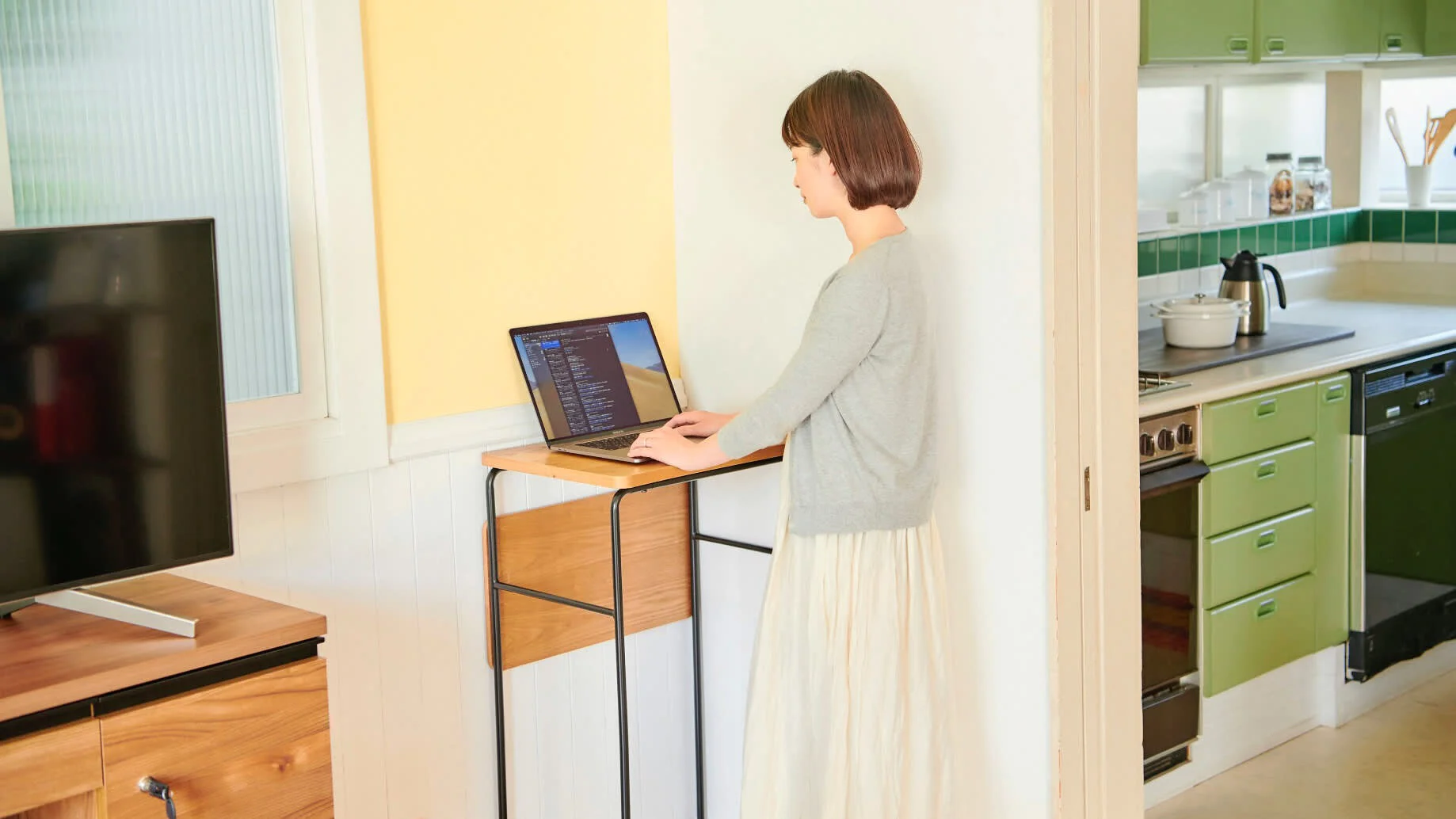Japan's work-from-home devotees are creating demand for office furniture.
Although the telecommuting trend arrived late in Japan, it is expected to gain momentum this year as companies pitch in to keep the capital's streets and trains relatively unclogged during the Tokyo Olympics.
Although many workers prefer working from home, they are finding their abodes lacking in ergonomics.
When Ryoko Yoshida of the University of Tokyo began telecommuting, she would make due with a living room coffee table as her desk.
Then "I started having neck pain," she said, "so I decided to change my furniture." Yoshida bought an Ubiq desk made by Itoki that allows her to work on a PC while standing.
Ubiq desks come in three heights, from 38 cm to 90 cm tall. Yoshida owns all three.
"I can switch desks to change my posture, which makes me feel refreshed and helps me to maintain my concentration," she said. "And I'm no longer bothered by neck pain."
Yoshida helps businesses, public entities and academics collaborate on projects. One of her projects was to ensure Itoki obtained feedback from consumers as it developed the Ubiq line of desks (she only recently began using the things).
Itoki also sells a desk chair that borrows design attributes from the gaming chairs e-sport players prefer. It has adjustable neck and lower back supports that are said to lighten the fatigue that can set in after long hours of work or play.
Other office furniture makers are adapting products for telecommuters. Osaka company Kokuyo sells a line of desk chairs with spring-loaded seats that can tilt in all directions as the user shifts. Ing chairs are targeted at both private and business users. When the user is facing a PC on a desk, the seat tilts forward, lightening the load on the neck and lower back. Sitting on an Ing chair is a bit like using a yoga ball.
"It allows users to shift their bodies just the right amount," a Kokuyo spokesperson said. "And that helps maintain concentration."
Yokohama's Okamura and Tokyo's Uchida Yoko are both pushing desks with adjustable tops to home users looking to improve their posture.
According to a Nikkei survey of some 700 companies across Japan, the ratio of those adopting telecommuting programs exceeded 50% in 2019. The demand for office furniture among the country's swelling number of stay-at-homes is growing because most home furniture is not designed for long hours of work.
Manufacturers' sales are growing. Although high-performance office furniture is more expensive than kitchen chairs and tables, Itoki sold 47% more via its e-commerce site, used mostly by individuals, in fiscal 2019 than in the previous year. The comparison is in value terms for products that were available both years.
Kokuyo's 2019 sales of office chairs for personal use were 150% higher than those in 2015.
Interest in working from home is expected to increase in the months ahead as Greater Tokyo residents begin to dread the added crush of people on their rush-hour trains during the Olympics and Paralympics. Heavier-than-usual congestion is anticipated not only due to visitors from abroad but because new traffic regulations are set to kick in.

